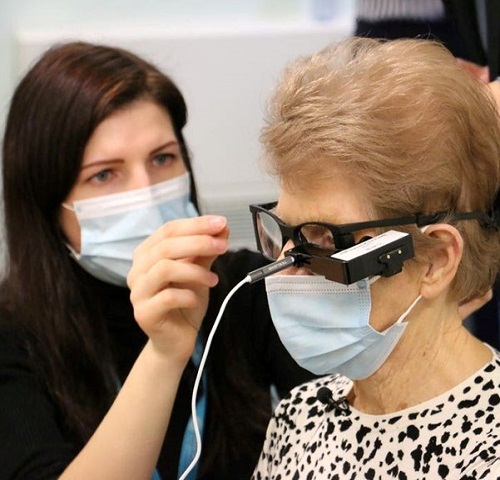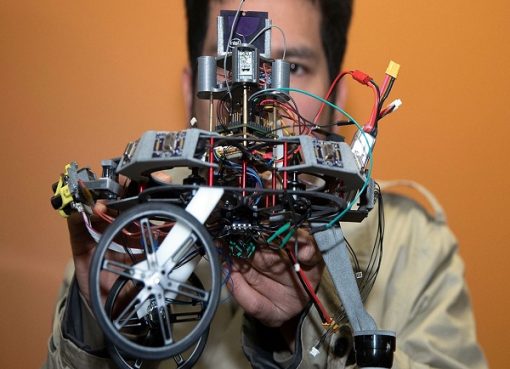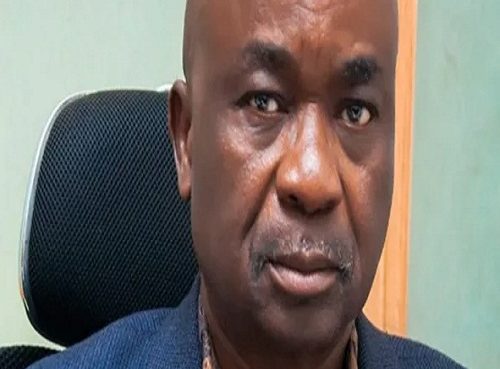An 88-year old woman who had lost her sight in one eye has become the first person in the UK to detect signals in her blind left eye thanks to a “revolutionary” new implant.
The procedure involves inserting a 2mm wide microchip under the centre of a patient’s retina, by surgically creating a trapdoor into which the chip is posted.
The patient uses special glasses, containing a video camera that is connected to a small computer attached to their waistband. The chip captures the visual scene projected by the glasses and transmits this to the computer.

Artificial intelligence (AI) algorithms process this information and instruct the glasses to focus on what they perceive to be the main object in the image. The glasses project this image as an infra-red beam through the eye to the chip, which converts this into an electrical signal.
This signal passes through the retinal cells and optical cells into the brain, where it is interpreted as if it were natural vision.
It is being trialled with patients who have lost their vision in an eye because of GA. This condition is progressive and currently has no treatment. 12 per cent of those over 80 will be affected by dry AMD, while GA affects 6.7 per cent of over 80s.
The 88-year-old woman, who has seven children and eight grandchildren, was the first UK patient to benefit from this implant.
She said: “Losing the sight in my left eye through dry AMD has stopped me from doing the things I love, like gardening, playing indoor bowls and painting with watercolours. I am thrilled to be the first to have this implant, excited at the prospect of enjoying my hobbies again and I truly hope that many others will benefit from this, too.”
Mahi Muqit, consultant vitreoretinal surgeon at Moorfields Eye Hospital, added: “This ground-breaking device offers the hope of restoration of sight to people suffering vision loss due to dry AMD. The success of this operation, and the evidence gathered through this clinical study, will provide the evidence to determine the true potential of this treatment.”
Source: E&T










